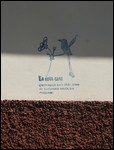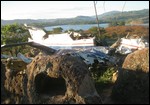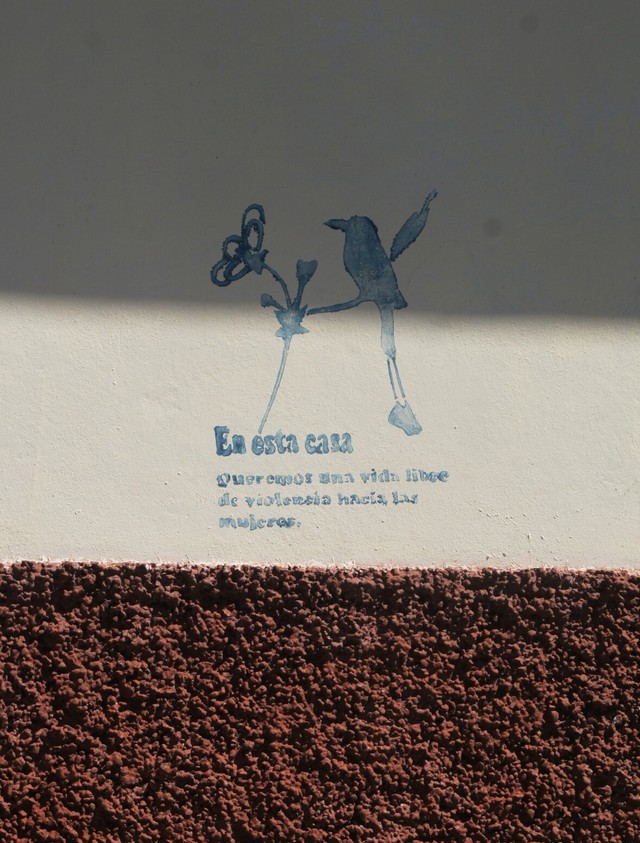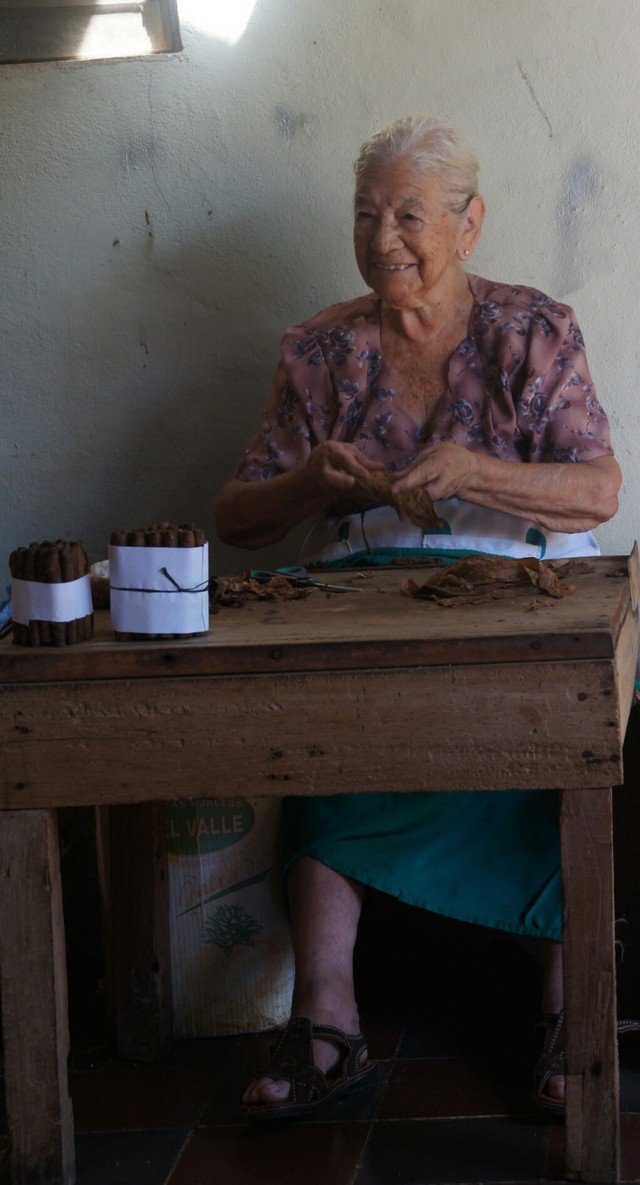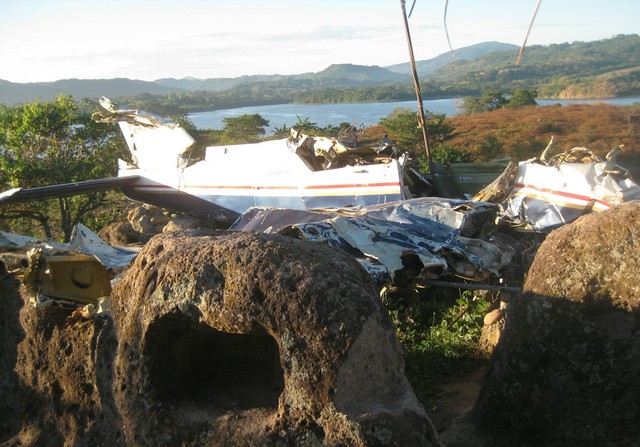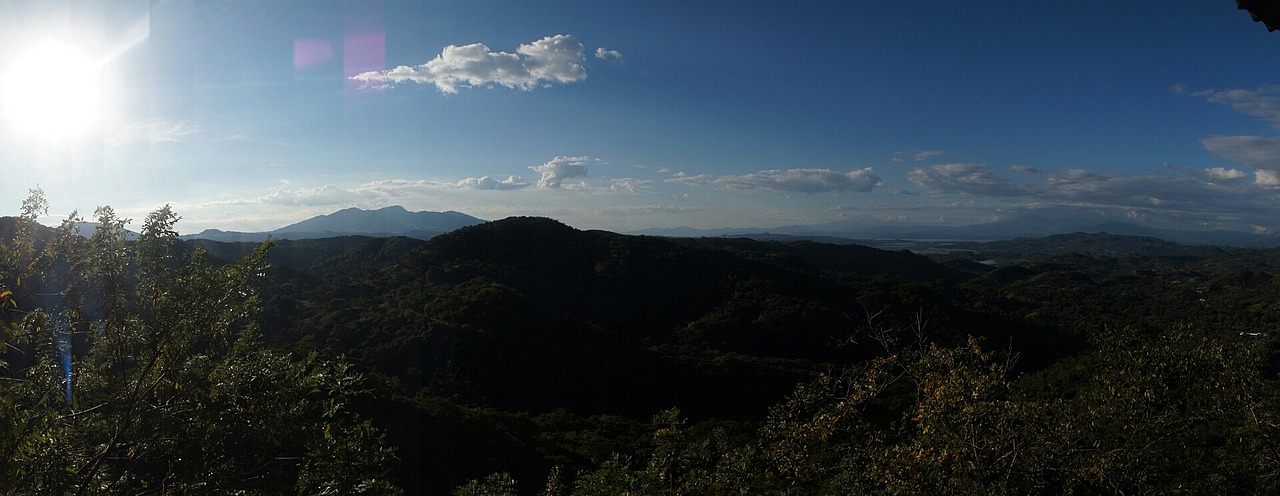Getting in to El Salvador is way easier from Guatemala than from Honduras, and getting from Honduras to Guatemala is easy as. Natch, we went back to Guatemala and went to El Salvador from there, to yet another colonial town with cobbled streets: Suchitoto. A late arrival gave time for little more than a taste of the local speciality: poposas, two tortillas with stuffing such as beans, pork and vegetables in between. Cheap and tasty.
The next days were packed with activities, though. In the 80's, a civil war raged in El Salvador. Peasants, and later students, rose up against an oppressive regime, forming a number of guerilla troops all over the country. Of course the US backed the government against their valiant fight against the nasty commies, and even though Fidel Castro eventually came to the rebels' aid, the odds were greatly in favour of the army. However, the ingenuity and local know-how of the guerrilla, with extra tips and tricks from the Viet Cong, brought to El Salvador by way of, ironically, American veterans, combined with pleads from the UN, eventually led to victory for the people.
Suchitoto was the only colonial city in the province that survived the bombings, much thanks to the city's proudest son: Alejandro Cotto, a well respected musician and film director. He got word of the government planning an airstrike a few days later, and promptly approached the National Philharmonic Orchestra for a gig, and then invited a number of ambassadors to the event. The bombing was cancelled, and before they got to reschedule, Cotto had convinced the president to spare the only remaining colonial city.
That, and more, we learnt on a guided city tour, and later, as we climbed the mountains in which the guerilla hid. In those days, the mountains were mostly covered by farm fields, with barely any forest to hide in. However, the climate and fertile soil help the trees to grow fast and tall, and it doesn't take many years for the fields to become jungle. And the view from the top is quite stunning. We got to meet one of the guerilla leaders, who now works as a local guide and ranger, and tells his stories of his perils during the war.
But Suchitoto is not just guerrillas and bombs. Once, the leading export of El Salvador was indigo, with Suchitoto being perfectly suited for growing indigo plants, or jiquilite. After the invention of artificial blue colouring the indigo industry effectively died, its last users reduced to handicraft rather than industry.
As indigo disappeared, new forms of employment were needed, especially for the women, and so cigars appeared. We got to meet a third generation cigar maker, a spry 98 year old lady, and got to try our cigar rolling skills, to various degrees of success.
As the so called macho culture is strong in El Salvador, campaigns and education are made for the embiggenment of women's rights and the importance of mutual consent. Many homes are emblazoned with a Tirogoz (aka the turquoise-bowed motmot), the national bird, as a symbol of a violence free household, and Sister Peggy runs an activity centre slash museum. There, children can come for lessons in art and music and skateboarding, or to play football or basketball, or take in the history of influential women throughout the ages and the world.
Suchitoto lies by the shores of Suchitlan, an artificial lake, created for the hydroelectric dam that provides power for the whole area. Suchitlan means bird lake, and therefore we took off before sunrise to go kayaking on the still waters. Many a bird could be watched, along with a plane wreck on Hermit Island.
Spending a couple of hours in a kayak boosts the hunger, and after a bagel breakfast we set off towards the Pacific coast.
